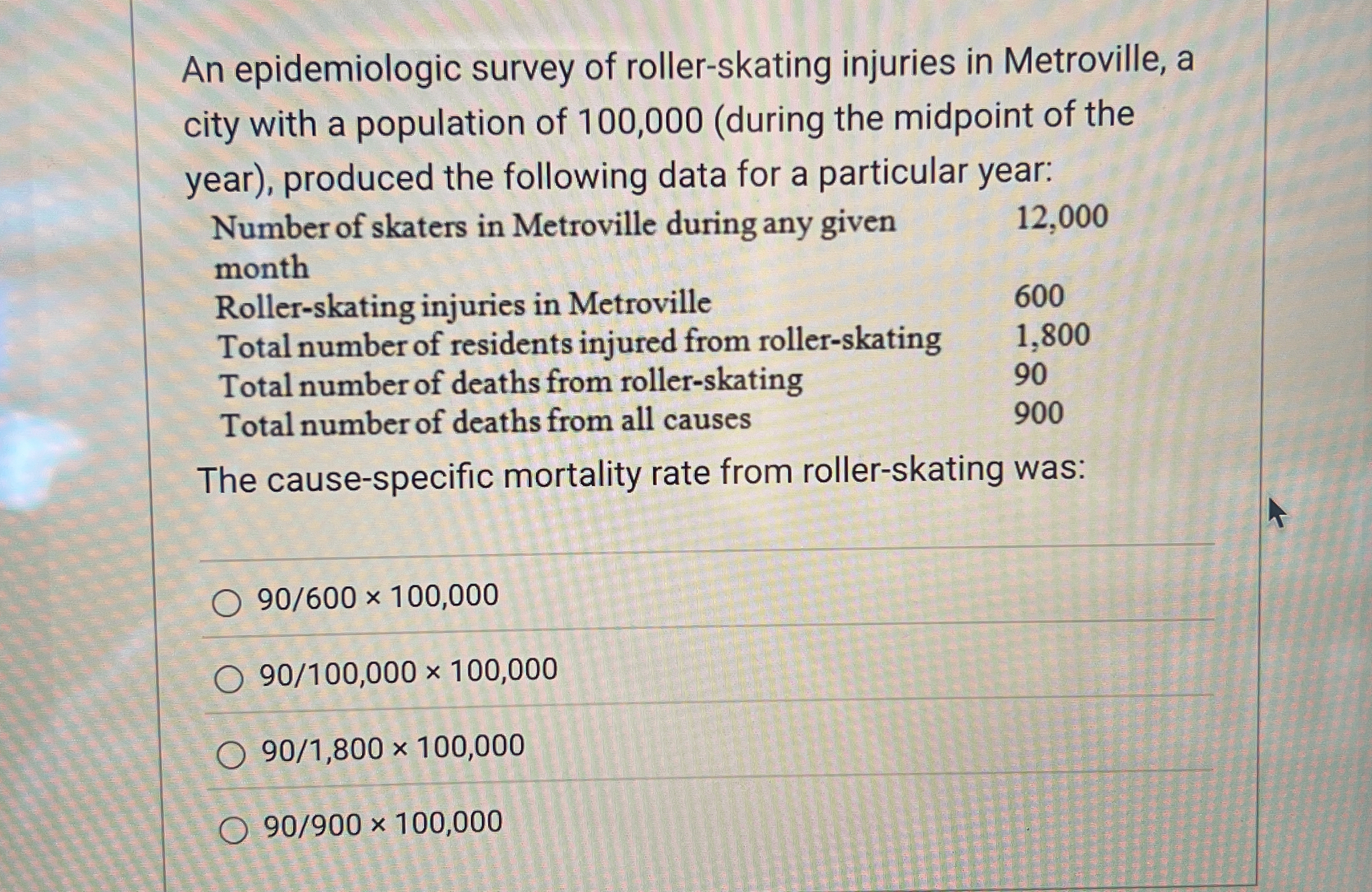The cause-specific mortality rate from roller-skating was:

Understand the Problem
The question is asking for the calculation of the cause-specific mortality rate related to roller-skating in Metroville, using provided data regarding injuries and deaths. It is essentially looking for the formula that correctly applies the data to calculate that specific rate.
Answer
The cause-specific mortality rate from roller-skating is $5,000$ deaths per 100,000 individuals.
Answer for screen readers
The cause-specific mortality rate from roller-skating is $5,000$ deaths per 100,000 individuals.
Steps to Solve
- Identify the formula for cause-specific mortality rate
The cause-specific mortality rate can be calculated using the formula: $$ \text{Cause-Specific Mortality Rate} = \left( \frac{\text{Total Deaths from the Cause}}{\text{Total Number Injured from the Cause}} \right) \times 100,000 $$
- Plug in the values from the data
From the question, we have:
- Total deaths from roller-skating: 90
- Total number of residents injured from roller-skating: 1,800
We substitute these values into the formula.
- Calculate the cause-specific mortality rate
Using the values in the formula: $$ \text{Cause-Specific Mortality Rate} = \left( \frac{90}{1,800} \right) \times 100,000 $$
- Perform the calculation
First calculate the fraction: $$ \frac{90}{1,800} = 0.05 $$
Then multiply by 100,000: $$ 0.05 \times 100,000 = 5,000 $$
The cause-specific mortality rate from roller-skating is $5,000$ deaths per 100,000 individuals.
More Information
The cause-specific mortality rate helps identify the risk associated with a specific cause of death in relation to the population exposed to that risk. Here, roller-skating injuries resulted in a mortality rate of 5,000 per 100,000 skaters, illuminating safety concerns in the activity.
Tips
- Confusing the denominator: Using the total population instead of the specific population affected by the activity can lead to incorrect calculations. Always ensure the denominator represents the appropriate group affected by the cause.
AI-generated content may contain errors. Please verify critical information